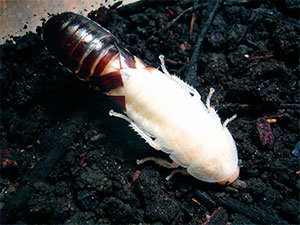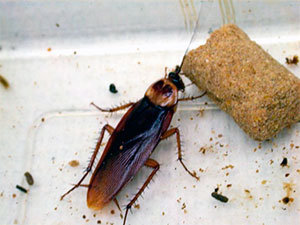Cockroach infestations pose serious health risks and can quickly spiral out of control without proper treatment. The right cockroach spray can eliminate existing populations while creating a protective barrier against future invasions. This comprehensive guide reviews the most effective cockroach killer sprays available today, helping you choose the perfect solution for your specific situation.
Quick Picks: Best Cockroach Killer Sprays

Editor’s Choice
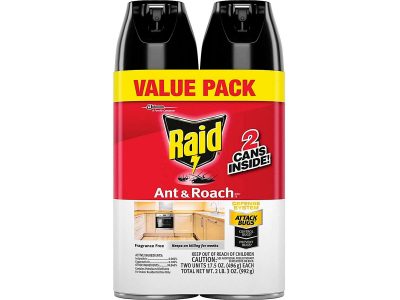
Fast Acting
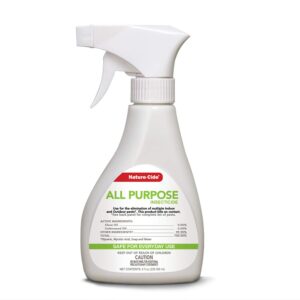
Natural Option
- Understanding Cockroach Sprays: How They Work
- Key Features to Look for in Cockroach Sprays
- Best Cockroach Killer Sprays – Detailed Reviews
- DIY Cockroach Sprays: Natural Alternatives
- Application Techniques and Safety Guidelines
- Choosing the Right Spray for Your Situation
- Maximizing Spray Effectiveness
- When to Call Professional Pest Control
- Common Mistakes to Avoid
- Frequently Asked Questions
- Conclusion
Understanding Cockroach Sprays: How They Work
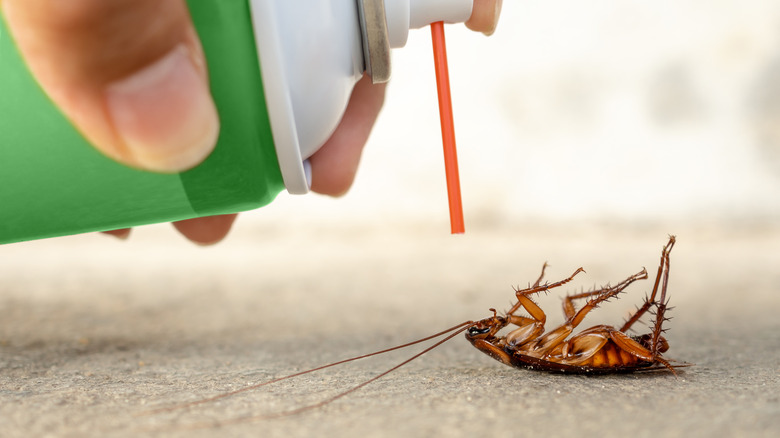
Cockroach sprays are specially formulated insecticides designed to eliminate cockroach populations through multiple mechanisms. These products typically contain active ingredients that attack the nervous system of cockroaches, causing rapid paralysis and death.
Contact Kill
Eliminates cockroaches immediately upon direct contact with the spray.
Residual Protection
Creates a protective barrier that continues killing cockroaches for weeks or months.
Colony Transfer
Cockroaches carry the insecticide back to their nests, eliminating hidden populations.
The most effective sprays combine immediate knockdown power with long-lasting residual effects. This dual approach ensures both visible cockroaches are eliminated quickly while preventing future infestations.
Key Features to Look for in Cockroach Sprays
When selecting a cockroach spray, certain features determine effectiveness and safety. Understanding these characteristics will help you choose the best product for your situation.
- Fast Knockdown Effect: The spray should kill cockroaches within minutes of contact, preventing them from escaping to hide or reproduce.
- Long-Lasting Residual Action: Quality sprays remain effective for 30-365 days, providing ongoing protection without frequent reapplication.
- Broad Spectrum Activity: Multi-pest formulations target cockroaches alongside ants, spiders, and other common household pests.
- Non-Repellent Formula: Cockroaches cannot detect the presence of the insecticide, ensuring they contact treated surfaces.
- Odorless and Stain-Free: Premium products leave no visible residue or chemical odors, making them suitable for indoor use.
- Safety Profile: EPA-registered products with reduced toxicity to humans and pets when used as directed.
Best Cockroach Killer Sprays – Detailed Reviews
Ortho Home Defense Insect Killer for Indoor & Perimeter
Editor's ChoiceHow Does It Work
How to Use
- For indoor use: Hold sprayer 12 inches from surface and apply a 4-inch wide band along baseboards, door frames, and window sills
- For perimeter treatment: Create a 12-inch wide protective band around your home's exterior
- Allow treated areas to dry completely before allowing children and pets to return
- Reapply annually or as needed based on pest pressure
- 12-month residual protection on non-porous surfaces
- Large coverage area with extended-reach wand
- Kills 130+ different pest species
- No mixing required - ready to use
- Odorless and stain-free formula
- Higher upfront cost compared to aerosol sprays
- Requires proper storage due to large container size
- May need multiple applications for severe infestations
Raid Ant & Roach Aerosol Bug Spray
Fast ActingHow Does It Work
How to Use
- Shake can thoroughly before each use
- Spray directly on cockroaches for immediate kill
- Apply to cracks, crevices, and areas where cockroaches hide
- Hold can 8-12 inches from surface and spray until visibly damp
- Ventilate treated areas and keep children and pets away until dry
- Kills cockroaches in seconds upon contact
- No greasy residue or strong odors
- Convenient aerosol application
- Effective against multiple pest species
- Affordable price point
- Shorter residual life compared to liquid concentrates
- Limited coverage area per can
- May require frequent reapplication in high-traffic areas
Nature-Cide All-Purpose Insecticide
Natural OptionHow Does It Work
How to Use
- Shake bottle thoroughly before application
- Spray directly onto cockroaches and areas of activity
- Apply to entry points, baseboards, and hiding spots
- Reapply as needed, typically every 7-14 days
- Safe for use in kitchens and food preparation areas
- Made from natural, plant-based ingredients
- EPA registered for safety and efficacy
- No synthetic chemicals or harsh odors
- Safe around children and pets
- Made in the USA
- Shorter residual effect than synthetic alternatives
- May require more frequent applications
- Higher cost per ounce than conventional sprays
- Limited knockdown speed compared to synthetic pyrethroids
DIY Cockroach Sprays: Natural Alternatives
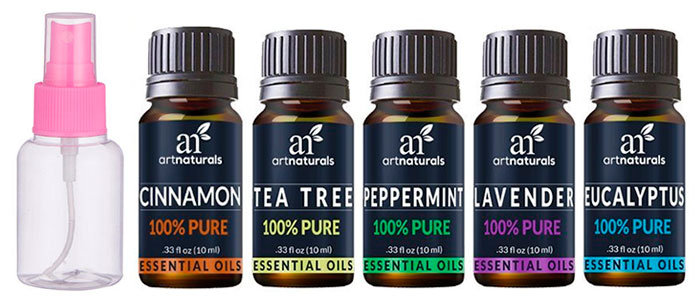
Homemade cockroach sprays offer an economical, customizable approach to pest control. While these solutions may not match the longevity of commercial products, they can be effective for minor infestations and ongoing prevention.
Essential Oil-Based Spray
Recipe for Natural Cockroach Spray
- 1 cup water or white vinegar
- 10-15 drops peppermint, eucalyptus, or tea tree oil
- 1 teaspoon liquid dish soap
- Optional: 1 teaspoon boric acid (use with extreme caution)
Instructions: Combine ingredients in a spray bottle and shake thoroughly before each use. Spray directly on cockroaches and areas of activity. The essential oils repel cockroaches while soap helps the solution adhere to surfaces and insect bodies.
Vinegar-Based Spray
White vinegar disrupts cockroach scent trails and creates an inhospitable environment. Mix equal parts water and white vinegar with a few drops of dish soap. This solution is particularly effective for cleaning areas where cockroaches have been active.
Limitations of DIY Solutions
While natural sprays are safer and more environmentally friendly, they have significant limitations:
- Shorter Effectiveness: Most DIY sprays lose potency within hours or days
- Limited Killing Power: Natural ingredients may only repel rather than eliminate cockroaches
- Frequent Reapplication: Requires daily or weekly treatment to maintain effectiveness
- Variable Results: Effectiveness depends on cockroach species and infestation severity
Application Techniques and Safety Guidelines
Proper application maximizes spray effectiveness while ensuring safety for your family and pets. Follow these professional techniques for best results.
Pre-Application Preparation
- Remove food, dishes, and utensils from treatment areas
- Clean surfaces to remove grease and debris that can interfere with spray adhesion
- Identify cockroach harborage areas: cracks, crevices, behind appliances
- Ensure adequate ventilation in treatment areas
Application Techniques
Crack and Crevice Treatment
Apply spray into small spaces where cockroaches hide. Use a thin stream or foam applicator to reach deep into gaps.
Perimeter Treatment
Create a protective barrier around your home’s exterior and interior entry points.
Spot Treatment
Directly target visible cockroaches and areas of high activity for immediate results.
Safety Precautions
- Wear protective clothing, gloves, and eye protection
- Keep children and pets away from treated areas until dry
- Provide adequate ventilation during and after application
- Store products away from heat sources and flames
- Never mix different spray products
- Read and follow all label instructions
Choosing the Right Spray for Your Situation
The best cockroach spray depends on your specific circumstances. Consider these factors when making your selection:
| Infestation Level | Recommended Product Type | Key Features | Application Frequency |
|---|---|---|---|
| Minor (occasional sightings) | Aerosol or natural spray | Quick knockdown, easy application | As needed |
| Moderate (regular sightings) | Residual liquid spray | 30-90 day protection, broad spectrum | Monthly |
| Severe (daily sightings) | Professional-grade concentrate | 12-month residual, non-repellent | Quarterly with professional help |
Special Considerations
- Households with Children: Choose EPA-registered products with reduced toxicity profiles
- Pet Owners: Look for pet-safe formulations and allow complete drying before pet access
- Food Service Areas: Use products specifically labeled for kitchen and food preparation areas
- Severe Allergies: Consider natural or low-odor formulations to minimize respiratory irritation
Maximizing Spray Effectiveness
Cockroach sprays work best as part of an integrated pest management approach. Combine spray treatments with these complementary strategies:
Sanitation Measures
- Eliminate food sources by cleaning crumbs and spills immediately
- Store food in sealed containers
- Fix leaky pipes and eliminate standing water
- Remove clutter that provides hiding spots
Exclusion Techniques
- Seal cracks and crevices with caulk
- Install door sweeps and weather stripping
- Repair screens and close gaps around pipes
- Use expanding foam for larger openings
When to Call Professional Pest Control
While sprays can handle many cockroach problems, certain situations require professional intervention:
- Large infestations with cockroaches visible during daylight
- Multiple species of cockroaches present
- Infestations in commercial food service establishments
- Repeated treatment failures with store-bought products
- Health concerns related to pesticide application
- Structural issues that prevent effective treatment
Professional pest control technicians have access to more powerful products and can identify the root causes of infestations that DIY treatments might miss.
Common Mistakes to Avoid
Avoid these common errors that reduce spray effectiveness:
- Over-application: Using too much spray can repel cockroaches before they contact the product
- Wrong Timing: Spraying during peak activity periods when cockroaches are most likely to avoid treated areas
- Inadequate Coverage: Missing key harborage areas where cockroaches actually live and breed
- Mixing Products: Combining different sprays can reduce effectiveness or create dangerous chemical reactions
- Ignoring Labels: Not following application rates and safety instructions can lead to treatment failure or health risks
Frequently Asked Questions
How long does cockroach spray take to work?
Most cockroach sprays kill on contact within minutes. However, the full effectiveness develops over 24-48 hours as cockroaches encounter treated surfaces. Residual sprays continue working for weeks or months after application.
For best results, avoid cleaning treated surfaces for at least 2 weeks to allow the residual effect to eliminate hidden populations.
Is cockroach spray safe around children and pets?
EPA-registered cockroach sprays are generally safe when used according to label instructions. Keep children and pets away from treated areas until the spray has completely dried, typically 2-4 hours.
For maximum safety, choose products specifically labeled as safe for use around children and pets, or consider natural alternatives for sensitive households.
How often should I apply cockroach spray?
Application frequency depends on the product type and infestation severity. Aerosol sprays may need weekly applications, while residual sprays can last 30-365 days. Reapply when you notice decreased effectiveness or new cockroach activity.
For prevention, apply quarterly treatments to maintain a protective barrier around your home.
Can I use cockroach spray in my kitchen?
Many cockroach sprays are labeled for kitchen use, but always check the product label first. Remove or cover food, dishes, and utensils before application. Focus on cracks, crevices, and areas behind appliances rather than food contact surfaces.
Allow treated areas to dry completely before returning food items to the area.
Why do I see more cockroaches after spraying?
Increased cockroach activity after spraying is normal and indicates the product is working. Cockroaches are being flushed out of their hiding places as they encounter the insecticide. This “flushing effect” typically lasts 1-2 weeks.
Continue monitoring and avoid cleaning treated areas to allow the spray to eliminate the entire population.
What’s the difference between repellent and non-repellent sprays?
Repellent sprays cause cockroaches to avoid treated areas, which can push them to untreated spaces. Non-repellent sprays are undetectable to cockroaches, allowing them to contact the insecticide and carry it back to their nests, eliminating more individuals.
Non-repellent formulations are generally more effective for colony elimination and long-term control.
Conclusion
Effective cockroach control requires the right spray for your specific situation combined with proper application techniques and complementary prevention strategies. Whether you choose a commercial product like Ortho Home Defense for long-lasting protection, Raid for immediate knockdown, or a natural solution for environmentally conscious control, success depends on consistent application and integrated pest management.
Remember that the most expensive spray isn’t always the best choice – consider your infestation level, safety requirements, and long-term prevention goals when making your selection. For severe infestations or persistent problems, don’t hesitate to consult with professional pest control services to ensure complete elimination and prevent future problems.
